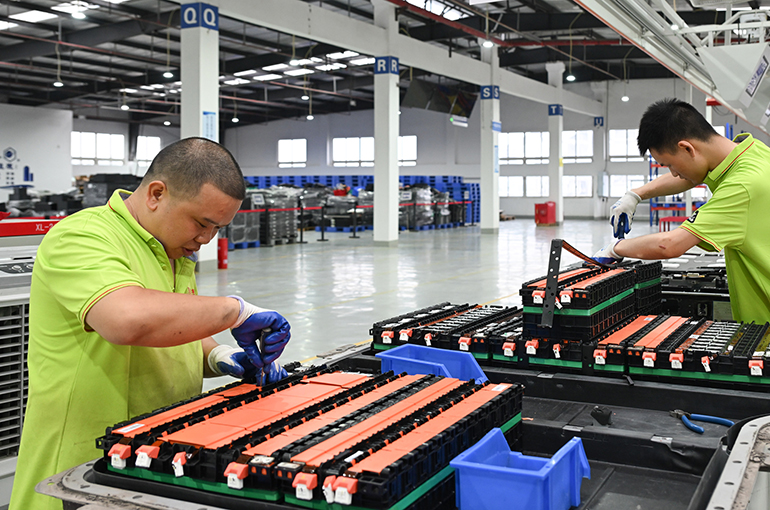 China's Stricter-Than-Ever EV Battery Rules Could Boost Solid-State, Sodium Battery R&D
China's Stricter-Than-Ever EV Battery Rules Could Boost Solid-State, Sodium Battery R&D(Yicai) April 16 -- China’s most stringent safety requirements for electric vehicle batteries to date, set to take effect on July 1 next year, are expected to accelerate research and development of next-generation technologies such as solid-state and sodium batteries, according to an expert.
This is the strictest regulation in the history of battery safety, Yu Qingjiao, secretary general of the Zhongguancun New Battery Technology Innovation Alliance, told Yicai.
For the first time, the new rules explicitly prohibit fires and explosions, effectively ending the industry’s previous lax approach to the risk of thermal runaway, Yu noted. He added that since solid-state and sodium batteries are inherently safer, the updated regulations will create more favorable conditions for their development.
Though still in the early stages of commercialization, these two alternatives to traditional lithium-ion batteries present a significantly lower risk of thermal runaway.
Fireproof Rules
A recent announcement by China’s Ministry of Industry and Information Technology revealed that the updated regulations -- an enhancement of rules first introduced in 2020 -- require that batteries must not catch fire or explode during thermal diffusion testing, and any smoke released must not harm vehicle occupants. In contrast, the older rules only mandated that an alarm be triggered five minutes before a fire or explosion.
Several major battery and automotive companies participated in drafting the new rules, including Contemporary Amperex Technology (the world’s largest EV battery supplier), BYD (the world’s largest EV seller), and global automakers such as Tesla, BMW, and Toyota.
Testing will become significantly more comprehensive. Batteries must not leak, crack, ignite, or explode -- in a bottom impact test. Additionally, batteries will need to undergo an external short-circuit test after 300 fast-charging cycles, with no fire or explosion permitted.
Solid-State EVs Expected by 2027
Several Chinese automakers, including BYD, SAIC Motor, and Changan Automobile, have announced plans to develop and commercialize solid-state batteries by 2027.
Unlike traditional lithium-ion batteries, which use a flammable liquid electrolyte, solid-state batteries employ a solid electrolyte that offers improved energy density and enhanced safety. However, large-scale production remains costly and technologically challenging.
Vehicles equipped with solid-state batteries are expected to enter the market in 2027, but it may take five to 10 years for large-scale adoption, said Ouyang Minggao, vice chairman of think tank China EV 100.
Editors: Dou Shicong, Emmi Laine